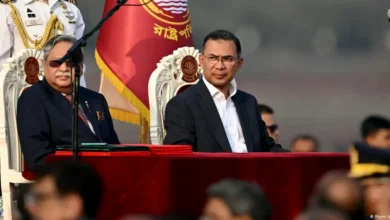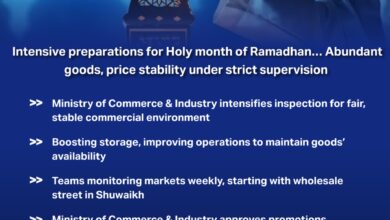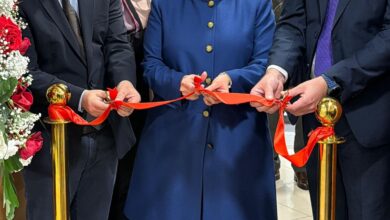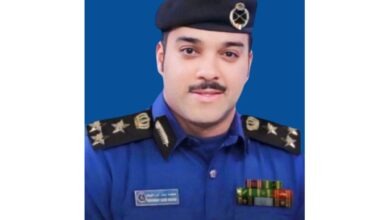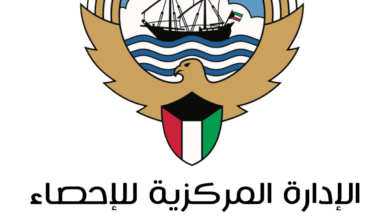Kuwait Municipality rakes in over KD 500,000 from digital licensing
Eng. Saud Fayez Al-Dabbous, Director General of Kuwait Municipality, stressed the need to address municipal transactions, noting that while 85-90% of old paper transactions are being digitized, the process is not yet complete.
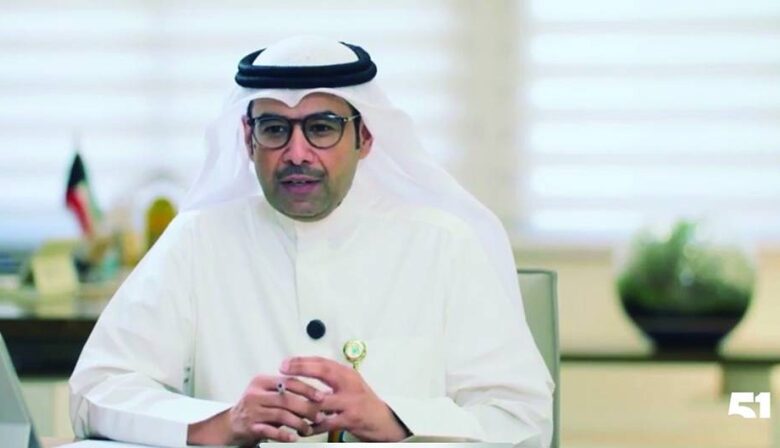
• The Kuwait Municipality has digitized all new services over the past two years, including licensing, renewals, and permits.
Eng. Saud Fayez Al-Dabbous, Director General of Kuwait Municipality, announced that the municipality has collected over 500,000 dinars from electronic advertisement licensing, a significant improvement over past losses. He noted that electronic licensing was implemented two weeks ago, according to Al Rai newspaper.
Al-Dabbous said during an interview on the program “In Your Hospitality,” hosted by media personality BarakatAl-Waqyan and broadcast on Kuwait TV and Platform 51, that “the role of the municipality and its various sectors is managed through the competence of each sector individually. Each sector develops the governorate’s plan, which is then detailed.”
He emphasized the need to address municipal transactions, noting that some old transactions are still processed on paper until they are scanned and attached to their electronic files for system entry. He indicated that the implementation of this process is not 100 percent complete but ranges between 85 and 90 percent.
Al-Dabbous explained that all new services over the past two years have been conducted electronically, including licensing, renewal and delivery of electricity, transfer of ownership, building permits, and boundary demarcation, all managed through the engineering and consulting office.
Study on building licenses
Regarding building permits, Al-Dabbous mentioned a forthcoming study on building licenses that the municipal team is working to implement, noting that the municipality will begin issuing them using engineering intelligence.
He added that readings will be conducted electronically through the program, which will provide details on the plan, needs, space, setbacks, and heights. If the system accepts these parameters, the license will be issued immediately, with the municipality’s role limited to subsequent verification.
He also mentioned a new initiative in the municipality’s budget to detect violations through aerial surveys using satellites. This step will greatly assist in identifying properties built in violation and will be useful for counting violations in hard-to-reach land areas.
He stated that the municipality’s cleanliness contracts will expire next November, but there will be a period to qualify new companies for future contracts. Companies not meeting the required standards will be excluded.
Development of municipal laws
He said that the development of municipal laws must be an ongoing process, not limited to a specific timeframe like a five-year plan or every ten to fifteen years.
He noted that each governorate will be assigned a specific color in the new cleanliness contracts: green for the northern regions, wild for the south, and blue for the coastal areas.
Additionally, Al-Dabbous revealed that he has submitted a draft decision to amend Municipality Law No. 33 of 2016 to align with the vision for the future municipality. He indicated that the amendment will include provisions for immediate violations and placing a block on violators, noting that some violations, such as construction infractions, are already treated as immediate.
In another matter, he explained that the Abdullah Al-Ahmad Entertainment Centre project covers 57,000 square meters. The rehabilitation phase, completed through an auction, has qualified three companies. The project is currently in the coordination stage for a period of five years, according to the consulting study.
Donations for development
He mentioned that Shuwaikh Beach is divided into four sections, one of which has been used for tire recycling. This project was developed through a donation from the National Bank of Kuwait.
He also stated that the development of Mubarakiya is divided into two parts: reconstruction (after the fire) and market development. Work has begun on the first section, which costs eight million dinars and is funded by a donation from Finance House.
“No magic wand”
Al-Dabbous expressed his complete dissatisfaction with the municipality’s current performance, noting that it has the potential to be stronger and better. He explained, “The municipality does not have a magic wand, and most of the problems it faces are related to legislation.”
“Urban Observatory”: The idea of Al Manfouhi
Al-Dabbous described the Urban Observatory as “a proposal to study the entire map of Kuwait. It is a consultative program that specializes in studying each governorate separately and measuring the extent of development within it.”
He pointed out that this proposal is the brainchild of former municipal director Engineer Ahmed Abdullah Al Manfouhi.
Workers to move into Sabhan labor city within a year
Al-Dabbous mentioned that the municipality recently took over the labor city project in the Sabhan area. He noted that it will take about a year to accommodate workers, with a capacity of 30,000 workers. The municipality’s role involves the general supervision of the project.








